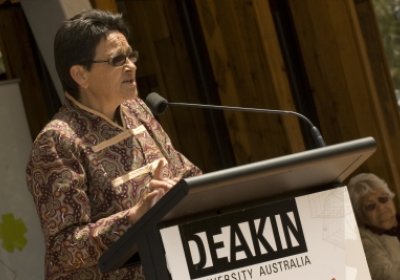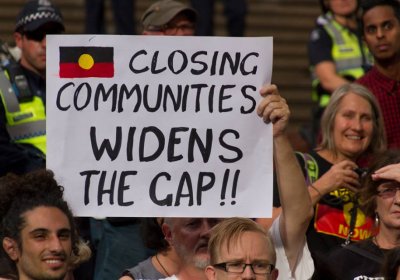After a huge amount of political pressure from the Victorian government, the Rail Tram and Bus Union (RTBU) agreed to postpone its August 21 tram and train strike, and Metro Rail and Yarra Trams agreed to return to the negotiating table.
Had the strike gone ahead it would have been the first such strike in 18 years.
RTBU members were clearly fed up with their respective train and tram companies, with 98% of railway workers and 99.4% of tram workers who returned ballots voting for industrial action.
Sue Bolton
August 13 was Day 4 of an indefinite strike and picket by workers at Woolworths’ Melbourne Liquor Distribution Centre (MLDC). The strike began at 4am on August 9 when workers walked off the job in protest at Woolworths’ plans that all new employees would be labour hire casuals.
During the last enterprise bargaining negotiations, Woolworths had agreed not to introduce labour hire. Currently, all employees, including casuals, are directly employed by Woolworths with opportunities for casual workers to apply to become permanent each year.
The official unemployment rate in Broadmeadows is 23.5% but the real unemployment and underemployment rates are far higher. Youth unemployment is higher than the overall rate. We are very close to the 30% unemployment rate of the Great Depression.
Woolworths has now announced that it intends to close its Hume Distribution Centre and shift it across town to the outer south-eastern suburbs. This would throw about 680 people out of work.
Woolworths’ decision that all new employees at its Melbourne Liquor Distribution Centre (MLDC) will be labour hire casuals has sparked an indefinite strike.
 In what has become a typical pattern by employers, Woolworths sent a text message to the 680 workers at its distribution centre in Broadmeadows on June 9 to inform them that the warehouse would be closed down in 2018.
In what has become a typical pattern by employers, Woolworths sent a text message to the 680 workers at its distribution centre in Broadmeadows on June 9 to inform them that the warehouse would be closed down in 2018.
There has been a wave of support for famous Sydney Swans footballer Adam Goodes in the face of the racist torrent that has been directed at him.
At the same time as people are expressing their solidarity with Goodes, right-wing commentators such as Andrew Bolt, Miranda Devine and Alan Jones are doing their best to stoke the racism, by denying that Goodes has been subjected to racist booing.
A planned show of strength by racists and neo-Nazis in Melbourne backfired when once again far-right protesters were outnumbered 20 to one on July 18.
The demonising of asylum seekers is an elaborate exercise in racist scapegoating designed to distract Australians from the real causes of anxiety and insecurity in their lives. We need to be absolutely uncompromising in our resistance to this toxic agenda.
Earlier this year it looked as if Labor4Refugees’ amendments to the Labor Party’s platform that specifically reject boat turnbacks might win enough votes from the ALP left and the Catholic right to get through at the ALP national conference in late July.
However, the Labor leadership is committed to a policy of deterring asylum seekers and is working to prevent any policy change at the conference.
Melbourne Resistance Centre was packed on May 9 as people gathered to hear First Nations activists and other anti-racism activists talk about fighting racism in Australia today. The seminar began with Wendy Brabham, nationally-respected Aboriginal academic and traditional owner from the Wamba Wamba, Wergaia, Nyeri Nyeri and Dhudhuroa first nations.
The Moreland council in Melbourne became the first council in Australia to pass a motion last month condemning plans for forced closures of Aboriginal communities, and to send a letter of solidarity to those communities.
The motion was moved by me as a Socialist Alliance councillor on Moreland council. The motion passed unanimously, with even the Liberal party councillor voting for it.
On April 28, a second Melbourne council, the Moonee Valley council, passed the same motion. The motion was moved by Jim Cusack, a Labor councillor.
Otis lift workers in Melbourne claimed victory on December 17 after an eight-week lockout when they voted to accept an agreement that included all but one of their demands.
The 174 Otis workers had been trying to negotiate with the company since April. With the company insisting on a below-inflation 1% wage increase, the workers began industrial action at the end of September with bans on overtime, shiftwork and the commissioning of lifts and escalators.
The company responded by locking out the workers on October 21.
- Previous page
- Page 12
- Next page










